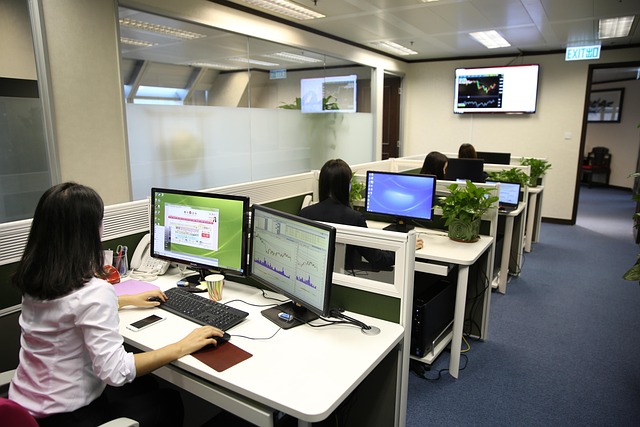Building a Resilient Business: Lessons from the Pandemic
The COVID-19 pandemic has been an unprecedented event that has shaken the foundations of global economies and altered how businesses operate. Organizations of all sizes faced challenges that tested their endurance, adaptability, and innovation. As the world gradually emerges from this crisis, the lessons learned during the pandemic can provide valuable insights into building a more resilient business model. This article delves into the essential strategies and approaches that organizations can adopt to strengthen their resilience in an uncertain landscape.
The Importance of Agility
One of the most profound lessons from the pandemic is the critical need for agility. Businesses that thrived during this period were those that could pivot quickly in response to changing circumstances. For instance, companies that traditionally operated brick-and-mortar establishments adapted by expanding their online presence, providing new services like curbside pickup, or even transforming their product offerings to meet new consumer demands.
Agility is not just about speed; it’s about being open to change and willing to experiment. Maintaining a flexible business model can allow organizations to respond to customer feedback, market dynamics, and unforeseen challenges. To foster agility, companies should encourage a culture of experimentation, where employees can voice ideas and take calculated risks without fear of failure.
Investing in Technology
Digital transformation became a necessity during the pandemic. Companies that had already invested in digital tools were better equipped to transition to remote work and virtual interactions. Technology enabled businesses to maintain operations and customer connections, and those that hesitated to embrace digital solutions found themselves struggling to keep up.
Investing in technology extends beyond IT infrastructure; it also includes customer relationship management (CRM) systems, e-commerce platforms, and tools for virtual collaboration. Organizations should evaluate their current technology stack and explore opportunities to enhance it, ensuring they can support a hybrid work environment while maintaining efficient operations.
Enhancing Supply Chain Resilience
The pandemic exposed vulnerabilities in supply chains worldwide. Disruptions caused by borders closing, production halts, and logistic delays forced businesses to rethink their supply chain strategies. Resilience in this area means diversifying suppliers, investing in local sourcing, and implementing robust risk management practices.
Companies should consider developing closer partnerships with suppliers and engaging in transparent communication about potential challenges. This allows for strategizing around alternative sourcing options, backup plans, and greater flexibility in inventory management. Resilient supply chains are adaptable and can withstand shocks, ensuring business continuity regardless of external pressures.
Prioritizing Employee Well-being
As organizations shifted to remote work, employee well-being emerged as paramount. Companies that prioritized mental health initiatives, work-life balance, and employee engagement fostered loyalty and productivity. Supporting workers through policies that promote flexibility, access to mental health resources, and open lines of communication can significantly enhance employee morale and retention.
Encouraging a healthy work environment goes beyond policies; it’s about cultivating a supportive company culture. Leaders should engage with employees regularly, provide necessary resources, and emphasize the importance of well-being as a core company value. Investing in the health and happiness of employees yields dividends in performance and retention.
Building Stronger Customer Relationships
The pandemic underscored the value of maintaining strong customer relationships. Engaging customers with empathy, keeping them informed, and providing tailored solutions increased loyalty even in times of distress. Being transparent about business challenges and listening to customer feedback allowed organizations to adapt and meet evolving needs effectively.
Companies should focus on enhancing customer experience through personalized communications, responsiveness, and reliability. Implementing tools that help gather customer insights and feedback can help businesses identify trends and preferences, enabling them to adapt offerings accordingly. A strong commitment to customer experience can differentiate resilient businesses from their competitors.
Embracing Sustainability
In light of the pandemic, many organizations have recognized the importance of sustainability—not just as a trend but as a necessity for future resilience. Businesses that prioritize sustainable practices tend to be more innovative and can better manage risks associated with environmental, social, and governance (ESG) factors.
Integrating sustainability into core business strategies can reduce costs, improve brand reputation, and attract a loyal customer base. Companies should evaluate their supply chains, production processes, and waste management systems to identify ways to minimize their ecological footprint. Additionally, fostering a culture of sustainability within the organization encourages employees to engage in environmentally friendly practices, enhancing the overall resilience of the business.
Continuous Learning and Adaptation
The pandemic reinforced that the business landscape is continually evolving. Organizations must adopt a mindset of continuous learning and adaptation, where they regularly assess their performance and respond to changes proactively. Emphasizing innovation and investing in training programs can prepare employees for shifts in industry trends and customer expectations.
Creating forums for knowledge sharing, encouraging participation in webinars, and providing access to industry research can contribute to a culture of learning. Businesses should also analyze past decisions to learn from successes and failures, adjusting strategies based on real-time data rather than assumptions.
Conclusion
The COVID-19 pandemic has been a stark reminder of the unpredictability that comes with running a business. However, it has also provided extensive lessons on resilience, adaptability, and innovation. By embracing agility, investing in technology, enhancing supply chain resilience, prioritizing employee well-being, building stronger customer relationships, committing to sustainability, and fostering a culture of continuous learning, businesses can navigate future uncertainties more effectively.
As organizations continue to adapt to the post-pandemic world, the insights gained during these challenging times will remain invaluable. Building a resilient business is not a one-time effort; it requires ongoing dedication to improvement and a proactive approach to change. By weaving resilience into the fabric of their operations, companies can emerge stronger and more capable of facing whatever challenges may lie ahead.



